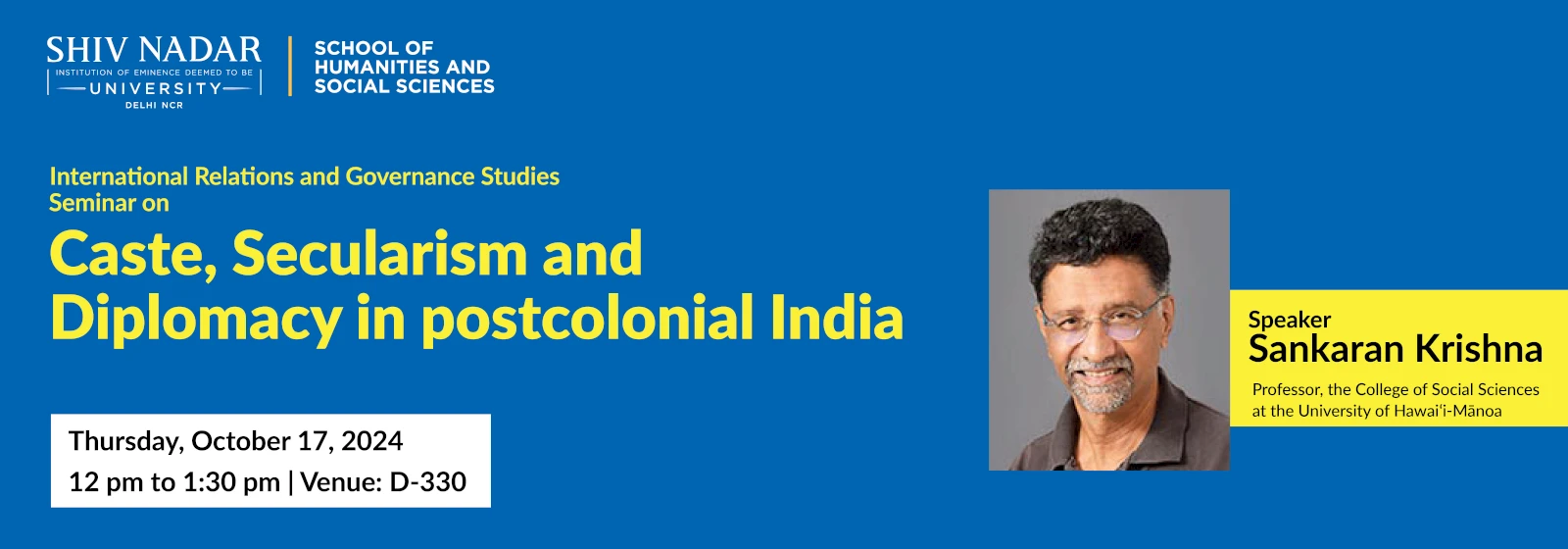"Caste, Secularism and Diplomacy in postcolonial India"
Abstract: This talk explores the relationship between Indian secularism and diplomatic practice. It is attentive to the ways in which the Indian state's self-fashioning as a secular entity influenced its diplomatic practice, and conversely, the ways in which Indian diplomacy enhanced the claim to being a secular polity. One of the important consequences of this dialectic between diplomacy and secularism, the paper argues, was a particular rendition of caste and caste inequality within India and abroad as aberrant and anachronistic, something that was on its way out, and as something that was not truly. reflective or representative of India. The paper ends by suggesting that the weakness of Indian secularism when faced with the rise of Hindutva from the late 1980s onwards may have had much to do with its shallow roots in the Indian social order.
Biography:
Sankaran Krishna is a Professor, the College of Social Sciences at the University of Hawaiʻi-Mānoa. He teaches Political Science at the University and works in the areas of International Relations, Comparative Politics, and South Asian studies. Besides two books (Postcolonial Insecurities, Minnesota, 1999; Globalization and Postcolonialism, Rowman and Littlefield, 2009), he has published essays on the centrality of racial amnesia in cohering the discipline of International Relations; on meritocracy as justificatory ideology for international inequality; and the salience of caste in the evolution of Indian diplomacy.

Share this: